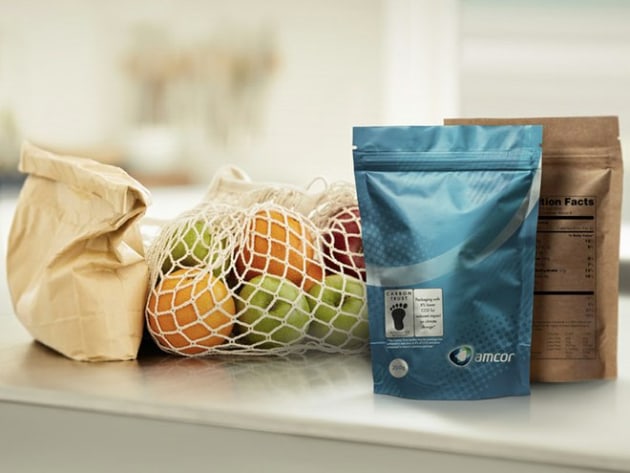Amcor expands on its sustainability credentials and sets a new benchmark for the sector by becoming the first global diversified packaging company to report to the Sustainability Accounting Standards Board (SASB).
By reporting against SASB’s Containers and Packaging standard, Amcor now leads the industry in terms of benchmarking and transparency to drive more sustainable performance.
“The SASB standards is an important benchmark for transparent reporting and one we know will help our stakeholders better understand Amcor’s commitment to managing ESG risks and improving outcomes,” said Tracey Whitehead, Amcor global head of investor relations.
“As a global leader in packaging, we recognise that enhancing transparency and accountability enables better, evidence-based progress against company and industry goals.”

Amcor also recently revealed that the Carbon Trust’s ‘Reducing CO2 Packaging’ label can now be printed on its packaging to demonstrate its carbon footprint reductions.
Carbon labelling is seen as a way for brands to demonstrate its commitment to a lower carbon economy, and its no different for Amcor, who has implemented the labels as part of its lifecycle assessment service.
Qualification for the use of the label is based on the ability to demonstrate a carbon footprint reduction of 20 per cent or more.
“It is great to see companies like Amcor develop tools to provide transparent carbon footprint information to their customers,” said Silvana Centty, Carbon Trust senior manager.
“Having a full understanding of where carbon reductions can be made in packaging is a step to lowering the environmental impact of a product.”
The first Amcor customer pilot for this service has been completed and the eventual roll-out is expected to accelerate in the coming months.
In addition to reporting against SASB standards, Amcor is also leading the sector in adopting several other initiatives, including:
- Reporting sustainability metrics in accordance with the Global Reporting Initiative (GRI) standards;
- Reporting annually through the CDP’s global disclosure system or assessments on climate change, water security and forests; and
- In 2020, joined WWF ReSource, which provides a best practice measurement framework to help quantify reductions in plastic waste.







